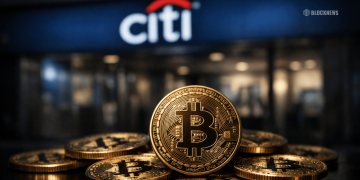- The Texas Senate will hold a public hearing on Tuesday to discuss SB21, a bill proposing a state Bitcoin reserve.
- A revised version of the bill expands investments to cryptocurrencies with a $500B+ market cap and removes the $500M annual purchasing cap.
- Texas leads U.S. Bitcoin mining, contributing 52% of the total hashrate, as over 20 states explore state-level Bitcoin reserves.
Texas is making moves in Bitcoin. The state’s Senate is set to hold a public hearing on Tuesday to discuss the creation of a strategic Bitcoin reserve, a proposal under Senate Bill 21 (SB21) introduced by Senator Charles Schwertner earlier this year.
This isn’t just another bill—it’s been marked as one of the Senate’s top 40 priorities by Lieutenant Governor Dan Patrick.
What’s Changed in the Latest Version of SB21?
A revised version of the bill was introduced last week, and it includes some key changes:
- Expands investments beyond Bitcoin—Texas can now invest in any cryptocurrency with a $500B+ market cap for at least a year.
- Removes the $500M annual purchasing cap, allowing greater flexibility in building the reserve.
The goal? Strengthen Texas’ economic resilience while embracing Bitcoin as a state-level asset.

Texas: The Bitcoin Mining Capital of the U.S.
If any state were to pioneer a Bitcoin reserve, Texas is the obvious choice.
- Texas-based public Bitcoin miners contribute a massive 52% of Bitcoin’s total hashrate.
- More than 20 states are already exploring state-level Bitcoin reserves, with West Virginia (WV) becoming the 23rd to introduce a similar bill last week.
- Polymarket data puts the odds of a federal Bitcoin reserve approval this year at 43%, meaning states could take the lead before Washington does.
With Texas at the forefront, other U.S. states—and even nation-states—could soon follow.














